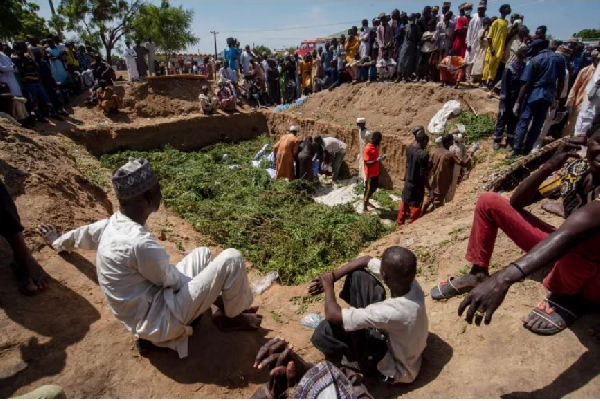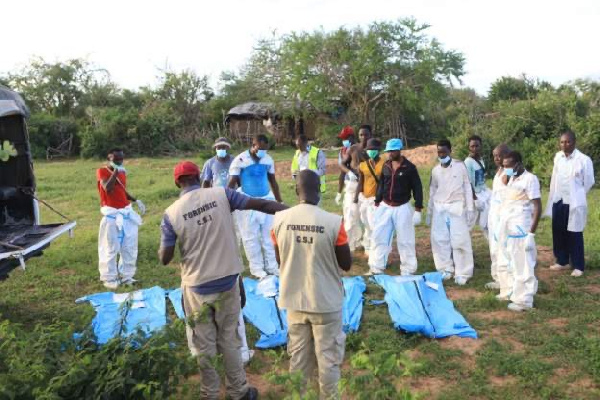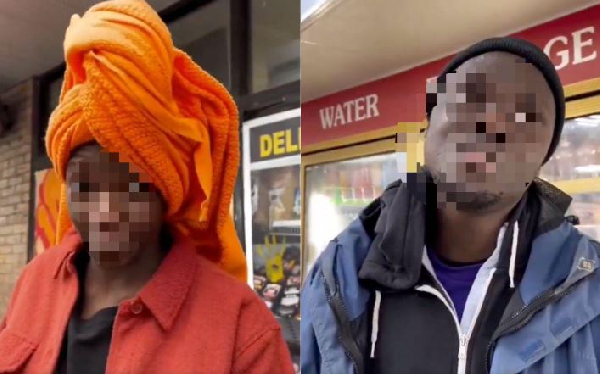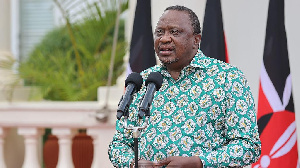‘We’ll never forget’: Town grieves after deadly Nigeria fuel tanker blast

Days after a fuel tanker explosion killed 170 mostly young people in Majia, a farming town in northern Nigeria’s Jigawa State, the close-knit community is still reeling from the overwhelming loss.
“It was a terrible situation that we have never witnessed in this town; many people lost their lives,” local businessman Mustapha Abdullahi told Al Jazeera.
“In my family, we lost about 52 people – all blood relatives.”
It was about 11pm on Tuesday when a tanker that was transporting fuel from neighbouring Kano State swerved to avoid an oncoming vehicle, then overturned, according to witnesses.
The petrol started flowing out of the tanker, and passersby and residents rushed over with bottles to collect what had spilled on the ground and through nearby drains.
The driver, who escaped the crash, tried to warn the crowd to leave the area for safety, witnesses said, but most did not listen. Then at about midnight, there was a big explosion, followed by a fire that ripped through the surrounding area.
The flames engulfed the dozens of people who were gathered near the tanker, as well as others who had arrived to try and help them. Authorities and locals said some 100 people died on site, and others later at the hospital.
“Those that were injured are being taken care of in various hospitals across the state and neighbouring state,” Abdullahi said, thankful to those who provided help.
Uzairu Musa Mainama, a local butcher who went out to help after the initial accident, sustained serious burns but survived.
“I was at home when I heard people screaming and calling for help,” he recounted. At first, he stayed home, but said he then thought the injured may need help. “[I thought] that there will be people involved which may need to be rescued. But after reaching the place, in less than three minutes, the fire started.”
Though he could not recall all the details, he remembered being “pushed away from the fire”.
“I quickly got up and removed my burning shirt, I took myself to the clinic and there we were, more than 100 that were injured.”
Some 70 people are still in intensive care in hospitals, police spokesman Lawan Shiisu Adam said on Friday.
‘Very dangerous’
In health facilities in Jigawa and neighbouring states, doctors, nurses and other support staff continue to work to save the lives of critically injured victims.
Residents said almost every family in Majia and adjoining communities has been affected by the tragedy – directly or indirectly.
On Friday, Adam said the death toll had increased to 170 – up from about 150 on Thursday.
Rescue personnel and survivors said the casualty figure could rise, considering that some of the victims sustained third-degree burns with vital organs affected.
In Majia, residents told Al Jazeera 120 people had been buried at a mass gravesite we visited on the outskirts of town, while 50 others were buried elsewhere.
Malam Hamza was among those grieving the loss of several family members.
He said his son Hassan went to the scene of the explosion while people were scooping up petrol, to try and usher them home for their safety. But instead, he was consumed by the fire and ended up losing his life.
“Hassan was indeed a very nice boy. I have never seen him fighting with anyone,” Hamza said.
His son had just obtained a diploma in pharmacy and was working with a clinic in Majia, Hamza added. Hamza’s three other sons, Yusuf, Saidu and Mustapha, also died in the fire. Hamza’s younger brother, Ilyasu Ibrahim, also lost his son, Yahya, while another of his sons, Abbas Ilyasu, was rushed to hospital with severe burns.
A few metres away from Hamza and Ibrahim’s homes, Muhammad Sabitu Haruna was also mourning the death of his son, Sani Sabitu, who ran a business centre in Majia.
Sani left behind two wives and eight children, his father said. Like Hassan Hamza, Sani went to the scene to usher away his younger siblings who were scooping up the fuel.
“He was here after Maghrib [sunset] prayer and when the truck fell, his mother asked him to go and chase his younger ones from the scene,” Haruna said. “But as fate would have it, he died while some of his siblings sustained severe fire burns.”
Most of the victims of the explosion were young people – 16 to 25 year olds – witnesses in the community said, explaining that they were the ones who rushed to the site to gather the spilled fuel.
Malam Ibrahim Lawan Majia, a Quranic school teacher, said five of his pupils died in the incident. “It is a terrible lesson for people not only here in Majia,” he said. “When something like this happens, people should refrain from scooping fuel. It is very dangerous,” he said.
Another resident, Abdullahi Salisu, said he lost his uncle, Tsoho Umar, while two brothers, Habun Salisu and Murtala Ado, sustained burns in the fire.
Source: aljazeera.com





